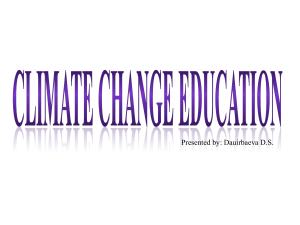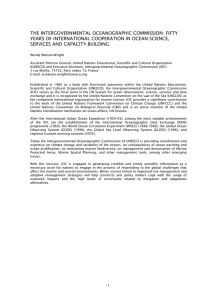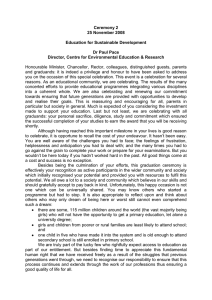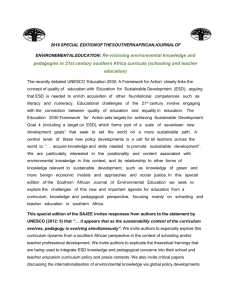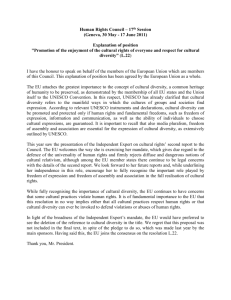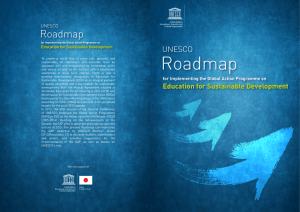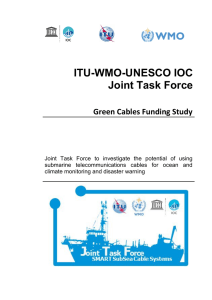Ocean in focus: science and education for sustainable development
advertisement
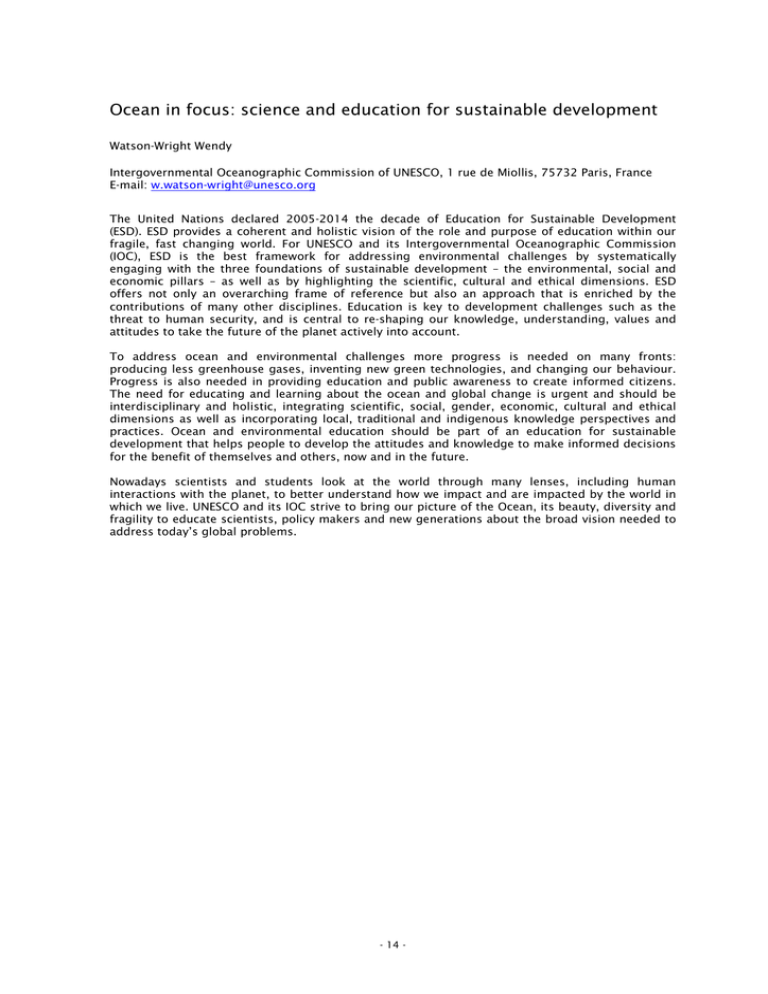
Ocean in focus: science and education for sustainable development Watson-Wright Wendy Intergovernmental Oceanographic Commission of UNESCO, 1 rue de Miollis, 75732 Paris, France E-mail: w.watson-wright@unesco.org The United Nations declared 2005-2014 the decade of Education for Sustainable Development (ESD). ESD provides a coherent and holistic vision of the role and purpose of education within our fragile, fast changing world. For UNESCO and its Intergovernmental Oceanographic Commission (IOC), ESD is the best framework for addressing environmental challenges by systematically engaging with the three foundations of sustainable development – the environmental, social and economic pillars – as well as by highlighting the scientific, cultural and ethical dimensions. ESD offers not only an overarching frame of reference but also an approach that is enriched by the contributions of many other disciplines. Education is key to development challenges such as the threat to human security, and is central to re-shaping our knowledge, understanding, values and attitudes to take the future of the planet actively into account. To address ocean and environmental challenges more progress is needed on many fronts: producing less greenhouse gases, inventing new green technologies, and changing our behaviour. Progress is also needed in providing education and public awareness to create informed citizens. The need for educating and learning about the ocean and global change is urgent and should be interdisciplinary and holistic, integrating scientific, social, gender, economic, cultural and ethical dimensions as well as incorporating local, traditional and indigenous knowledge perspectives and practices. Ocean and environmental education should be part of an education for sustainable development that helps people to develop the attitudes and knowledge to make informed decisions for the benefit of themselves and others, now and in the future. Nowadays scientists and students look at the world through many lenses, including human interactions with the planet, to better understand how we impact and are impacted by the world in which we live. UNESCO and its IOC strive to bring our picture of the Ocean, its beauty, diversity and fragility to educate scientists, policy makers and new generations about the broad vision needed to address today’s global problems. - 14 -
